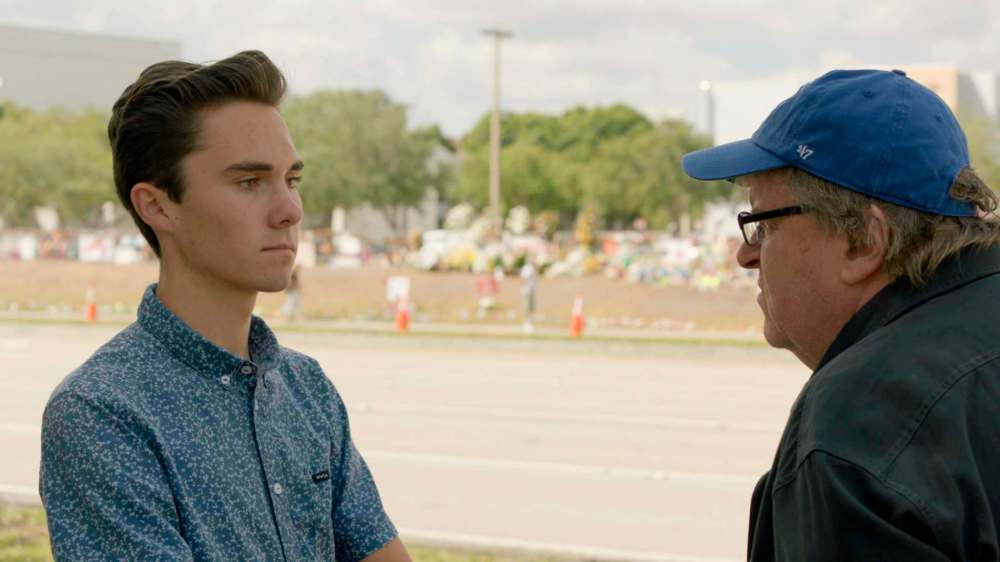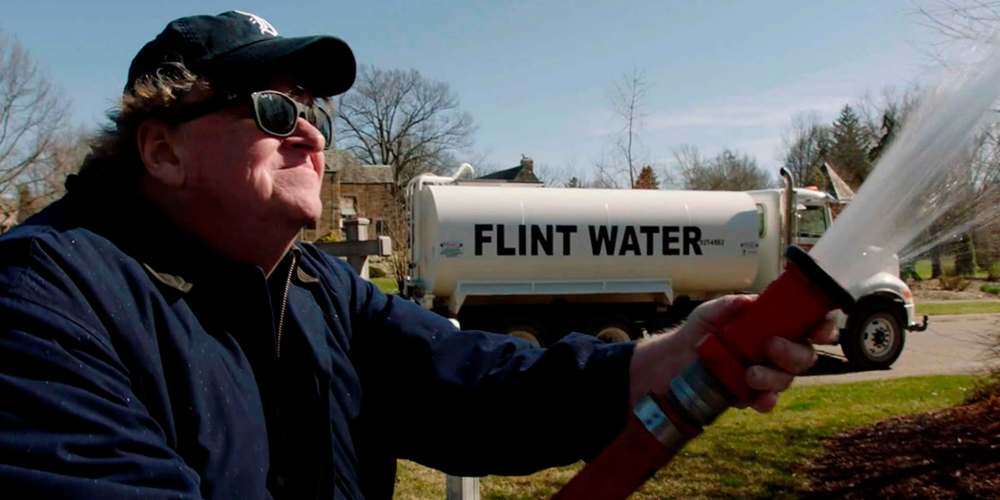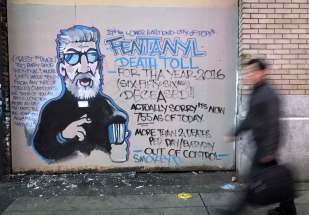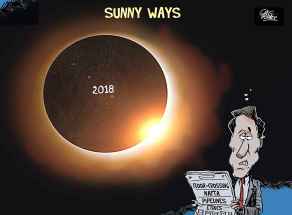Director’s Trump card New president, old documentary tricks for Fahrenheit 11/9's Michael Moore
Read this article for free:
or
Already have an account? Log in here »
To continue reading, please subscribe:
Monthly Digital Subscription
$0 for the first 4 weeks*
- Enjoy unlimited reading on winnipegfreepress.com
- Read the E-Edition, our digital replica newspaper
- Access News Break, our award-winning app
- Play interactive puzzles
*No charge for 4 weeks then price increases to the regular rate of $19.00 plus GST every four weeks. Offer available to new and qualified returning subscribers only. Cancel any time.
Monthly Digital Subscription
$4.75/week*
- Enjoy unlimited reading on winnipegfreepress.com
- Read the E-Edition, our digital replica newspaper
- Access News Break, our award-winning app
- Play interactive puzzles
*Billed as $19 plus GST every four weeks. Cancel any time.
To continue reading, please subscribe:
Add Free Press access to your Brandon Sun subscription for only an additional
$1 for the first 4 weeks*
*Your next subscription payment will increase by $1.00 and you will be charged $16.99 plus GST for four weeks. After four weeks, your payment will increase to $23.99 plus GST every four weeks.
Read unlimited articles for free today:
or
Already have an account? Log in here »
Hey there, time traveller!
This article was published 21/09/2018 (2639 days ago), so information in it may no longer be current.
Deliberately released ahead of November’s mid-term elections in the U.S., director Michael Moore’s typically freewheeling documentary Fahrenheit 11/9 is, first and foremost, a call to action designed to help shift the balance of American political power from Donald Trump’s new brand of Republicanism to an upstart brand of liberal socialism in the vein of Bernie Sanders.
By the title (referring to the day in 2016 Trump won the election, covered in a prelude that is as difficult to watch as the most scabrous torture porn), you can infer it is also a kind of sequel to Fahrenheit 9/11. That 2004 doc that offered up a formidable polemic attack on then-president George W. Bush, becoming along the way the highest grossing documentary of all time. That film largely functioned as an exposé of Bush’s fear-mongering as a tool for manipulating the electorate.
Trump, of course, takes the fear-mongering to a whole new level, but Moore is not interested in repeating himself. Indeed, he primarily examines Trumpism through the lens of his own hometown, Flint, Mich., as it continues to suffer a poisoned-water crisis initiated by its unconscionably corrupt governor, Rick Snyder.
The closest Moore gets to Snyder, by the way, is when he spritzes the governor’s mansion lawn with lead-filled water from Flint’s toxic water supply. This, and an attempt to place Snyder under citizen’s arrest in the state capitol, carry only a faint echo of Moore’s more outrageous past stunts.

Yet his polemic instincts are still sharp. In a controversial centrepiece, Moore does provide a fairly chilling parallel between the successes of Trump and Adolf Hitler, two calculating populists who are all too willing to act upon their most racist instincts.
Most importantly, Moore is disinclined to paint a sympathetic portrait of the more institutional Democrats. Bill Clinton is portrayed as a Republican in Democrat’s clothes. Barack Obama is spotlighted for his disappointing appearance in Flint, when he symbolically sipped from a glass to try to cynically calm that community’s troubled, poisonous waters.

One must appreciate Moore for a certain bracing honesty, even when he is supposedly issuing a rallying cry. But his impatience with old-guard Democrats is justified when their strategy of “compromise” resulted in… Trump.
Surprisingly, Moore barely touches on special investigator Robert Mueller’s noose-tightening investigation into Russian involvement in the 2016 presidential election, which he apparently deems a longshot solution.
The salvation of the Democratic Party — and it is a party that needs saving, he insists — is in its activist upstarts. These include Sanders, superstar congressional candidate Alexandria Ocasio-Cortez or the students of Stoneman Douglas High School in Parkland, Fla., who somehow succeeded in subverting the all-powerful National Rifle Association where previous generations of gun-control activists failed. It includes striking schoolteachers fed up with living below the poverty line.
Hope, Moore seems to say, is just a word on an old Obama election poster. Something more is required of the American electorate. And Moore demonstrates convincingly through an examination of Trump’s despotic tendencies that the stakes have never been higher.
randall.king@freepress.mb.ca
Twitter: @FreepKing
MOVIE REVIEW
Fahrenheit 11/9
Directed by Michael Moore
PG
128 minutes
★★★ 1/2
Other voices
What sticks… is the larger message the movie delivers in its call to private citizens on public service: Run, vote, care.
— Leah Greenblatt, Entertainment Weekly
Fahrenheit 11/9 represents a sincerely bold attempt to capture the overwhelming civic decay that led to our current political crisis, but Michel Moore’s circus-showman duplicity is as crass and abhorrently self-promoting as that of Donald Trump.
— Jake Cole, Slant Magazine
Watching Fahrenheit 11/9 often feels like getting socked in the gut, but it leaves you with your blood pumping hard and fast, ready to get up off the floor and throw the next punch.
— Sam Adams, Slate
It might not be his best filmmaking, but Fahrenheit 11/9 is fraught with a critical mindset that syncs with the zeitgeist. It’s a messy movie for messy times.
— Eric Kohn, indieWire
This brand of gonzo journalism was effective in Moore’s 1989 debut about Flint and General Motors, Roger & Me, but it has long since devolved into self-parody.
— Kerry Lengel, Arizona Republic
Fahrenheit 11/9 is funny and mischievous in parts, but too little of it feels fresh or shocking.
— Stephen Dalton, The Times

In a way, Randall King was born into the entertainment beat.
Our newsroom depends on a growing audience of readers to power our journalism. If you are not a paid reader, please consider becoming a subscriber.
Our newsroom depends on its audience of readers to power our journalism. Thank you for your support.










